Currently studying abroad for a year as part of his European Legal Studies with Kent Law School, and a member of the University Chorus and Cecilian Choir, singer Ben Weiland writes from Vienna…
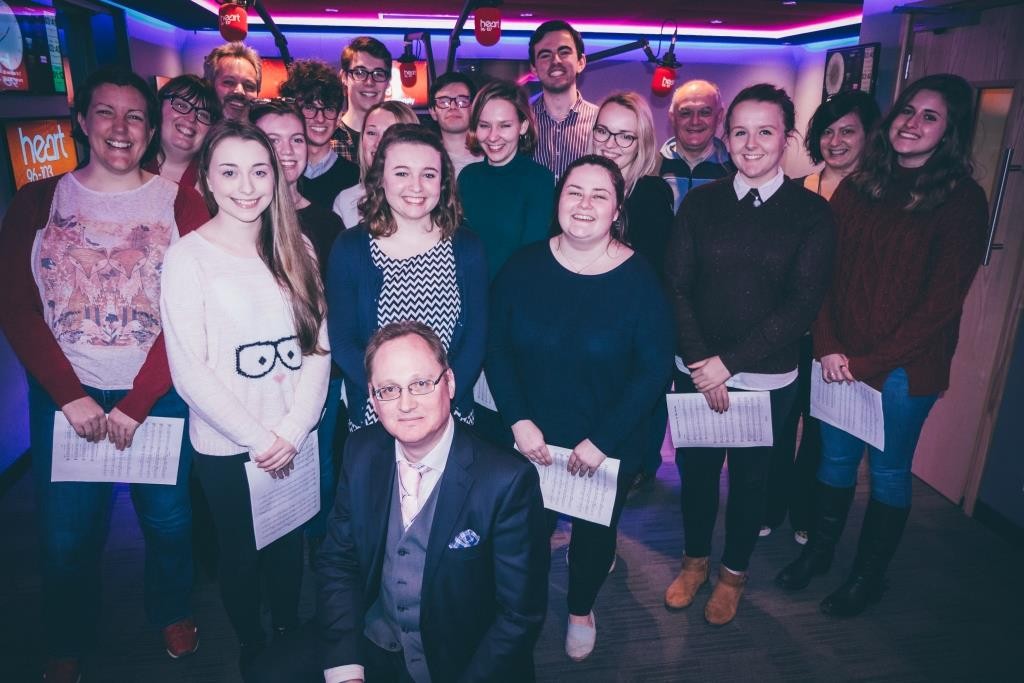
Hello from Vienna! I just wanted to share what I’ve been up to and ask how everything is going with Kent music – I’m missing the Cecilian Choir! I saw that you did the Fauré Requiem recently – very jealous. What an absolutely marvellous work! I remember seeing the programme for the Colyer-Fergusson Cathedral as well which also looked marvellous – Tchaikovsky Symphony 6! I very much look forward to returning to it all in September!
Spending this year in Vienna has been (and will continue to be) an utter delight. It is a thriving city, full of life and excitement. The greatest beauty Vienna has to offer for me is its musical culture, which is unique and unparalleled. I didn’t fully comprehend until I arrived just how central Vienna has been to the history of music. It’s obviously famous for Mozart and Schubert, but Beethoven, Brahms and many other towering figures had lived and composed here. As a result, the current musical tradition is still very strong; you can’t walk around a corner without seeing the famous golden Musikverein poster advertising a concert, or a similar advertisement for an opera at the Staatsoper. Concert-going, I realised early on, is very much both a cultural and societal affair. It’s almost a customary tradition for the Viennese aristocracy to suit up and attend operas and concerts, as if it’s simply a matter of course. This isn’t to say it’s taken for granted, but this is just how life is – the people are surrounded by this supreme musical wealth. However, for someone outside of this aristocracy, the concerts are still very accessible. Ticket prices can be very reasonable depending on certain factors – very often I have decided to go to a concert on the day, which is made possible due to standing tickets (3-4 Euros for the opera; 5-6 Euros for the Musikverein). It cannot be stressed enough, the joy of knowing that every day there is a world-class concert that I could go to if I felt like it.
From a personal standpoint, I was very keen to go to the Musikverein, as this was the home of my father when he studied and played the violin here (before becoming a composer) in his early 20s. He had a month playing in the Vienna Philharmonic, so it was a must for me to attend a concert as soon as possible. I also had to refresh my memory of the great building, as I came here when I was little to attend the concert of my father’s piano trio, performed by the Altenberg Trio. I am reminded of a photo of me standing on the Brahmsaal stage, with the performers at the end of the concert, and naturally it was a very surreal experience for me to be there once again, around 14-15 years later. I have managed to go and hear the superb Altenberg Trio perform twice since being here and it is quite something, hearing wonderful pieces being performed with such a pure beauty. I still get a fuzzy feeling whenever I walk into the Grossersaal (or ‘Golden Hall’), even though by now I must have gone in over twenty times! Its nickname of the ‘Golden Hall’ is very apt, the clue is in the name – there is gold everywhere.
Alongside concert life, I have also been taking part in a lot of singing. Initially, it was just with the University Choir. We had a wonderful first semester, singing Frank Martin’s Mass with the Symphony Choir, and a range of baroque pieces (Palestrina, Byrd) with the Chamber Choir. The highlight, however, has to be the Beethoven’s Ninth Symphony that we performed with the University Orchestra at the Musikverein in September. This was an extraordinary experience! As if I hadn’t been reminded enough, standing on the stage of the Golden Hall it hit me that this is the home of the ground-breaking, incredible piece of music. It was first performed in 1824 here in Vienna, along with so many of Beethoven’s other works. Like with any really great music, regardless of other factors such as the history, it’s very hard to put into words the feelings, emotions and significance of experiencing it – all I can say is that it was a very special evening for everyone involved, something I will remember forever.
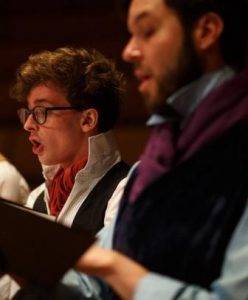
Singing in the Symphony choir continues this semester, but the most exciting development since being in Vienna was being invited to sing in a professional choir – the Philharmonia Chor Wien – in productions of Verdi’s opera Rigoletto in an Austrian festival in the summer. Needless to say I was absolutely thrilled by the opportunity, and after already having a week’s rehearsals I am in awe of what the summer promises. The Philharmonia Chor Wien perform regularly at the Salzburg festival and the Baden-Baden festival, and receive engagements from major institutions and orchestras, such as the Berlin Philharmonic and Vienna Philharmonic. I was aware of this before attending my first rehearsal, and indeed I was expecting a high standard, but was still nonetheless taken-aback by the quality of the choir’s sound. As the choir specialises more in operatic music, the sound is different to what I’m used to with more traditional, church choral music. It is different but in a very positive sense; in many ways richer and grander. The eminent chorus master and founder of the choir has very kindly been giving me some lessons, teaching me a real grounding in what is required of an operatic voice. Certainly, my voice has come on a lot in such a short space of time.
This exploration into operatic music has opened my eyes to an area I never had much experience with previously. My musical upbringing has always been with choral, chamber and orchestral music – a wide spectrum but one that can only offer insight to a certain extent into opera. My initial impressions are there is definitely a specific charm to opera that isn’t found in, for example, orchestral music. I am still trying to decide whether I am left overall satisfied to the same degree as with orchestral and choral music, but certainly in the Rigoletto there is a type of excitement and drama to the music that I haven’t come across before. This is ignoring the fact that acting is required in opera as well (something I’m looking forward to engaging in, albeit slightly nervously). Definitely this is one of the many aspects of life here that I wish to try and understand far more by time I leave in the summer, and what better place to learn than to be able to go to one of (if not the) greatest opera institutions in the world – the Wiener Staatsoper – every day if I wanted to!
I could write a small book on the musical life of Vienna, and undoubtedly there is much that I have left out of this short piece. There is so much more to be learnt and experienced throughout this semester, and to enjoy in the summer the numerous Musical festivals Austria puts on show. After my stay here I will have to sit down and try to write out everything that I have seen and experienced – a difficult task! The irony is that I’m actually here to be studying Law, which has been also very stimulating and of course I have been immersing myself in my studies, but music is my love and passion. When an opportunity to be in a place like this comes around, it has to be grabbed with both hands!
I just really wanted to share the experiences I have been having, say hello, and express my looking forward to returning to the University next year. I trust everyone is well at Kent and wish everyone the best for the rest of the year!



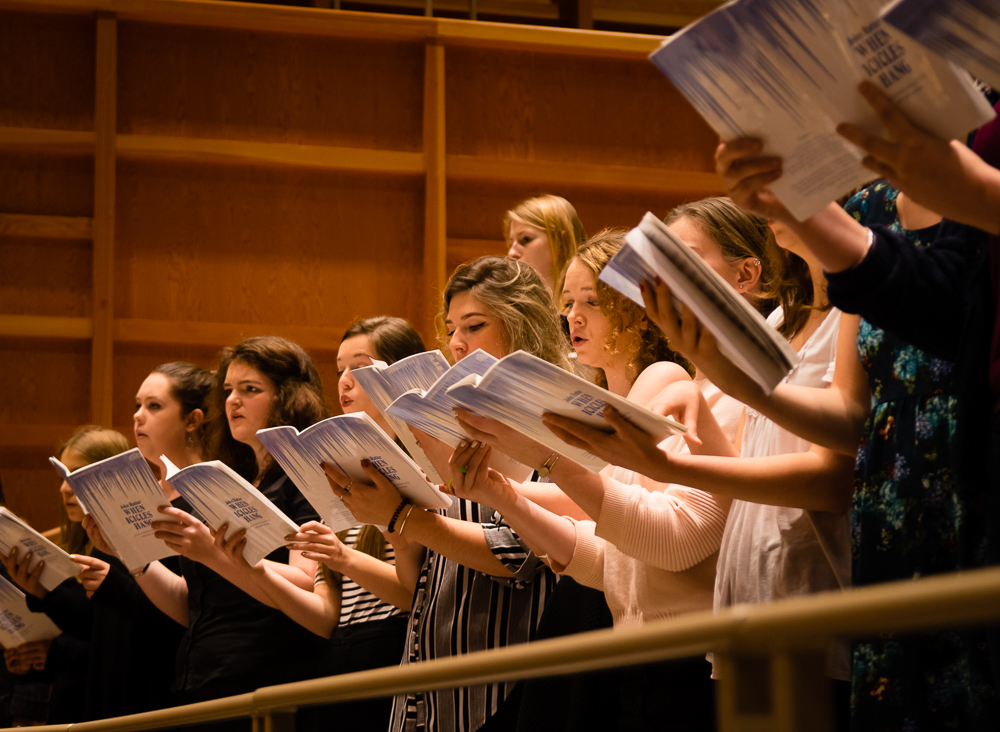
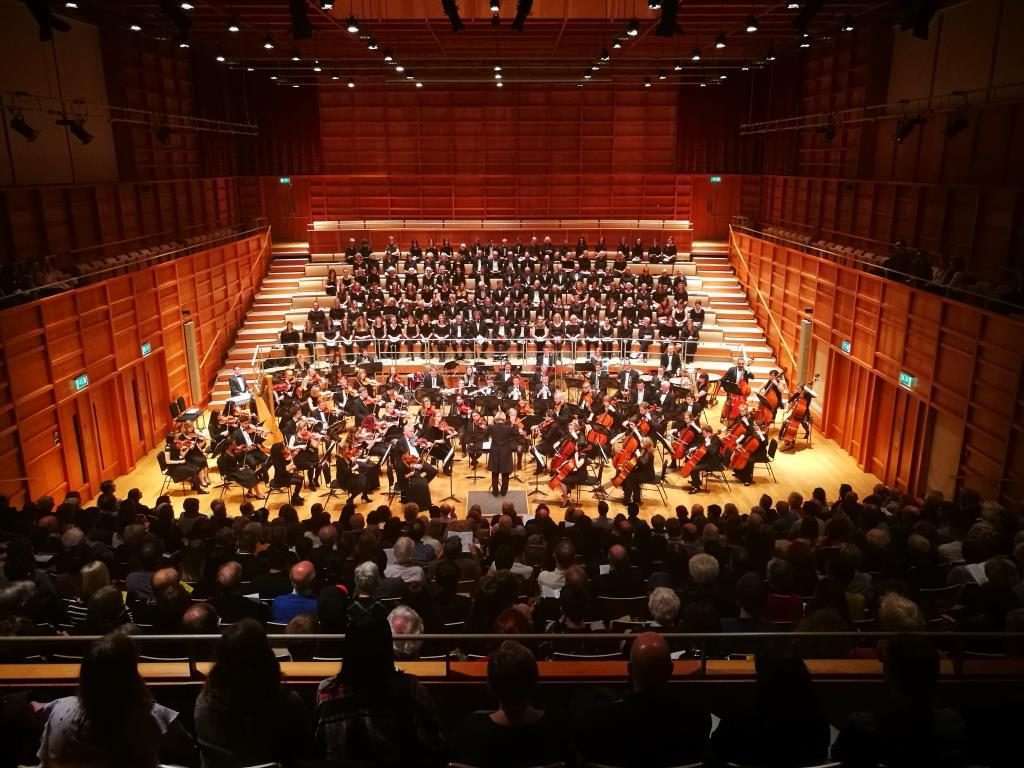

 As many find, making music – and singing in particular – is a wonderful antidote to the stresses and strains of working life, and Chorus provides a welcome respite from the pressures of dissertation-thrashing in the Templeman Library or grappling with your inbox as a senior member of staff. Staff from both academic and support services can be found alongside postgraduates and undergraduates, senior administrators alongside alumni, members of Registry reaching for those top notes along with local residents. When you’re singing in Polish, or Finnish, all social distinctions are cast aside as you grapple with linguistic challenges and try to keep one eye on the vocal score and one on the Director of Music. But with a strong international flavour to the University community, there’s usually a native-speaker sitting in the choral risers who can advise on tricky pronunciation!
As many find, making music – and singing in particular – is a wonderful antidote to the stresses and strains of working life, and Chorus provides a welcome respite from the pressures of dissertation-thrashing in the Templeman Library or grappling with your inbox as a senior member of staff. Staff from both academic and support services can be found alongside postgraduates and undergraduates, senior administrators alongside alumni, members of Registry reaching for those top notes along with local residents. When you’re singing in Polish, or Finnish, all social distinctions are cast aside as you grapple with linguistic challenges and try to keep one eye on the vocal score and one on the Director of Music. But with a strong international flavour to the University community, there’s usually a native-speaker sitting in the choral risers who can advise on tricky pronunciation!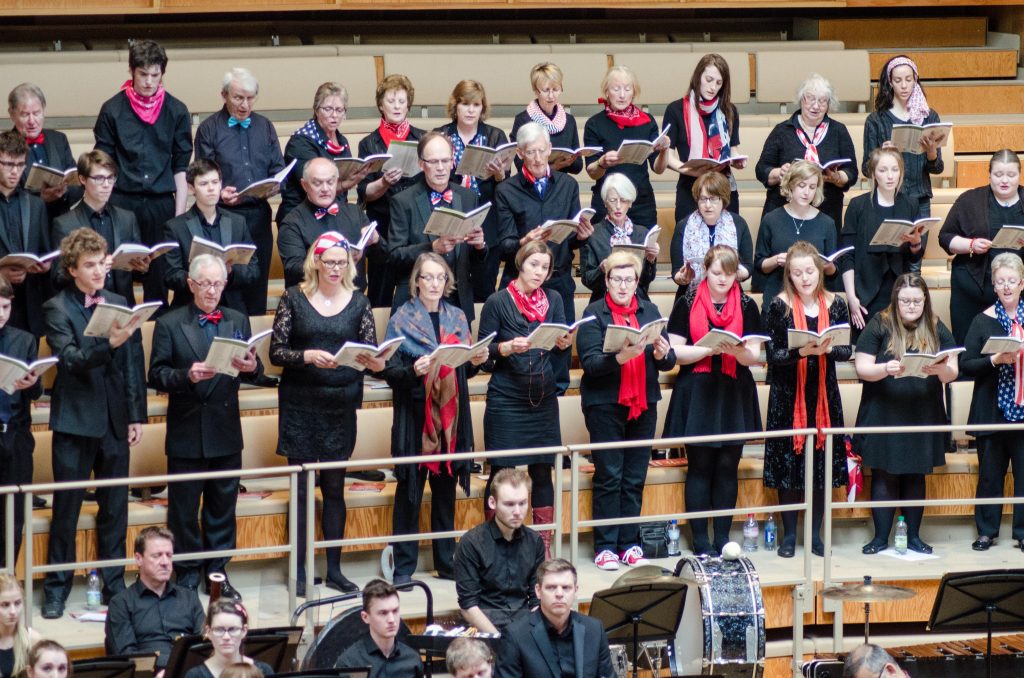 The University Chorus started life as a fifty-strong group which rehearsed in the Senate Building, before taking up residence in the cavernous confines of Eliot College Hall, with its Monday nights in the nowhere-to-hide lack of acoustics in Grimond LT-1; nowadays, it sits in Colyer-Fergusson Hall and watches as the acoustic curtain shifts and flows according to need. Later in the year, it sits on the vertiginously-steep choral risers in the nave of the Cathedral and wonders how it can make its way safely down to the flagstone floor again… The life of a University Chorus member is never dull.
The University Chorus started life as a fifty-strong group which rehearsed in the Senate Building, before taking up residence in the cavernous confines of Eliot College Hall, with its Monday nights in the nowhere-to-hide lack of acoustics in Grimond LT-1; nowadays, it sits in Colyer-Fergusson Hall and watches as the acoustic curtain shifts and flows according to need. Later in the year, it sits on the vertiginously-steep choral risers in the nave of the Cathedral and wonders how it can make its way safely down to the flagstone floor again… The life of a University Chorus member is never dull.
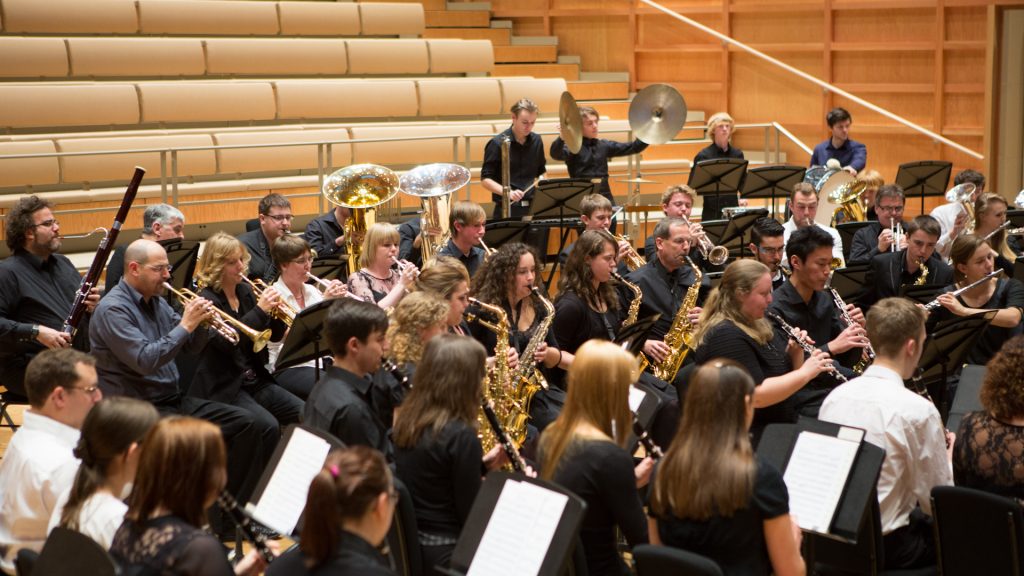
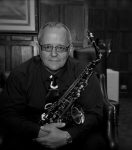 On the conductor’s podium is the sprightly figure of Ian Swatman – Bob Marley devotee and possibly the most dedicated fan Hull City will ever have – vigorously taking charge of Wednesday rehearsals and leading the assembled forces through repertoire in preparation for their various termly concerts. In December, the Big Band can be found in Santa hats and jazz-infused versions of seasonal repertoire for the popular Christmas Swing-along, whilst both forces combine each March for their roof-raising Spring concert, and for a farewell concert each June.
On the conductor’s podium is the sprightly figure of Ian Swatman – Bob Marley devotee and possibly the most dedicated fan Hull City will ever have – vigorously taking charge of Wednesday rehearsals and leading the assembled forces through repertoire in preparation for their various termly concerts. In December, the Big Band can be found in Santa hats and jazz-infused versions of seasonal repertoire for the popular Christmas Swing-along, whilst both forces combine each March for their roof-raising Spring concert, and for a farewell concert each June.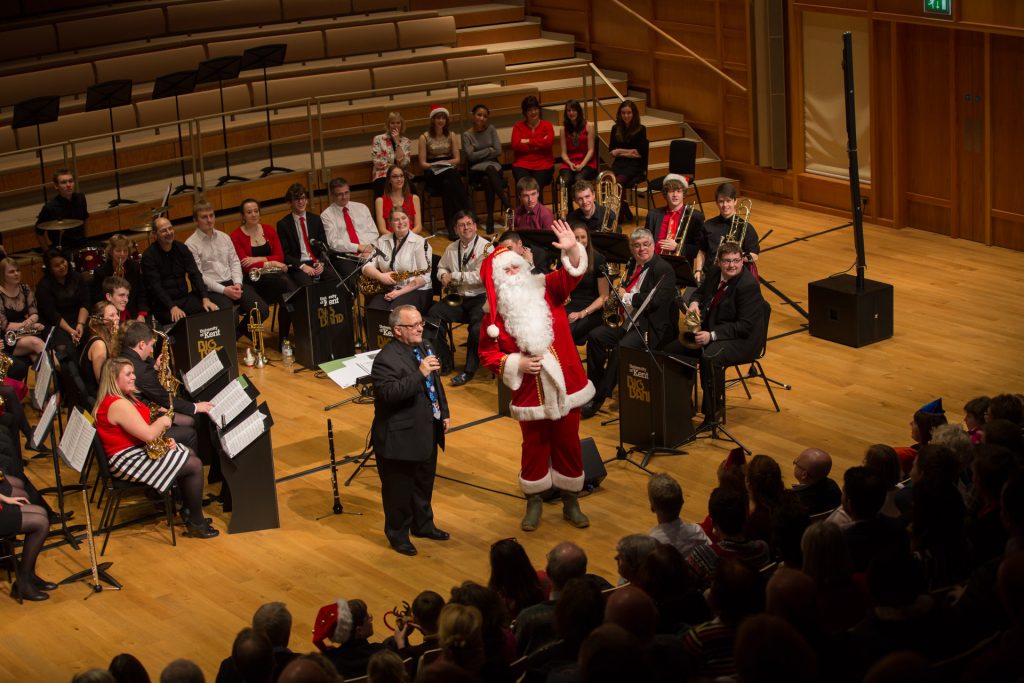
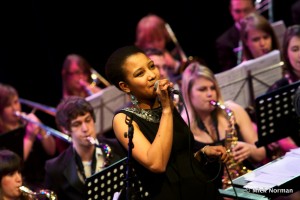
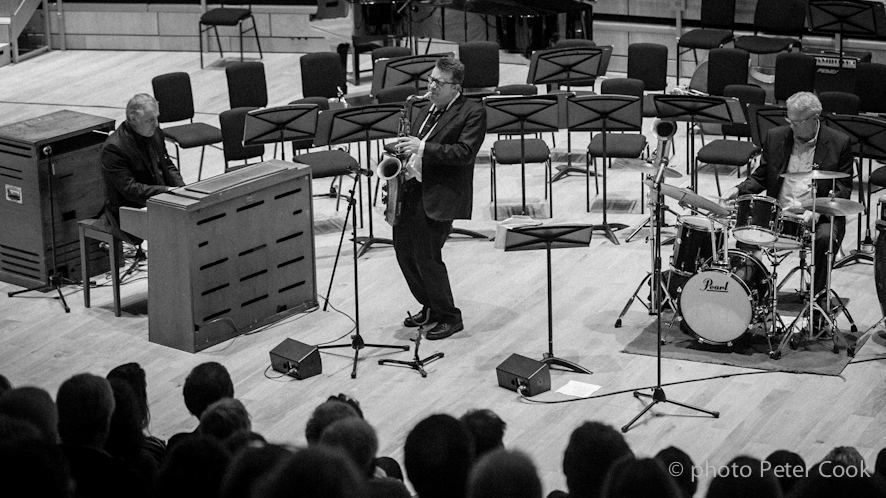
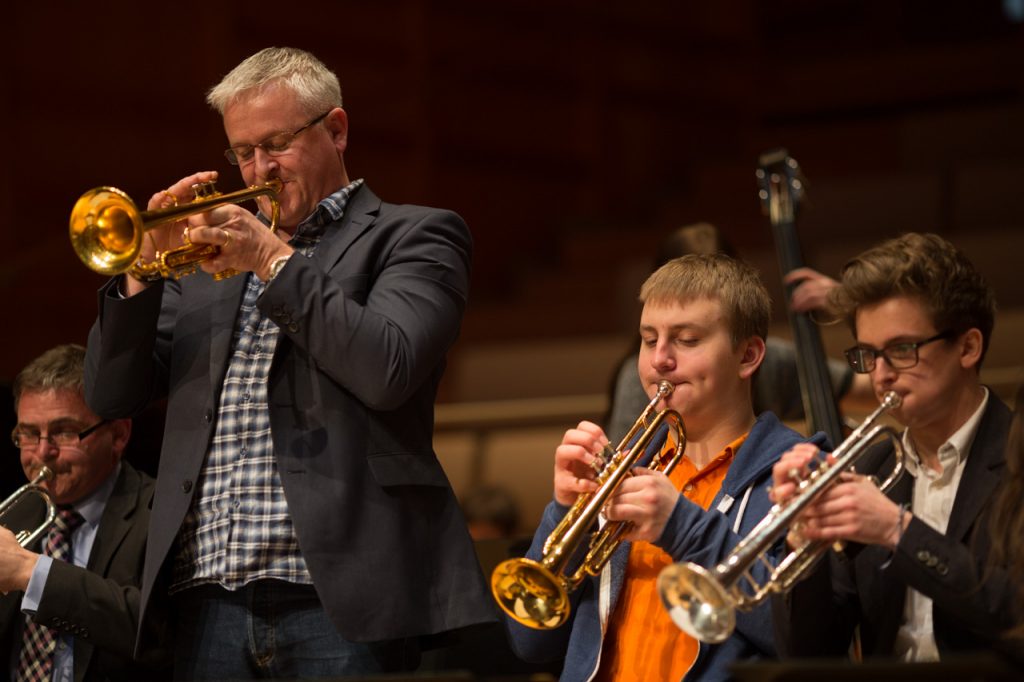
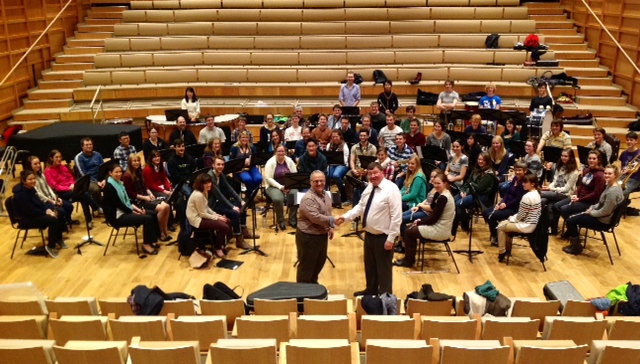
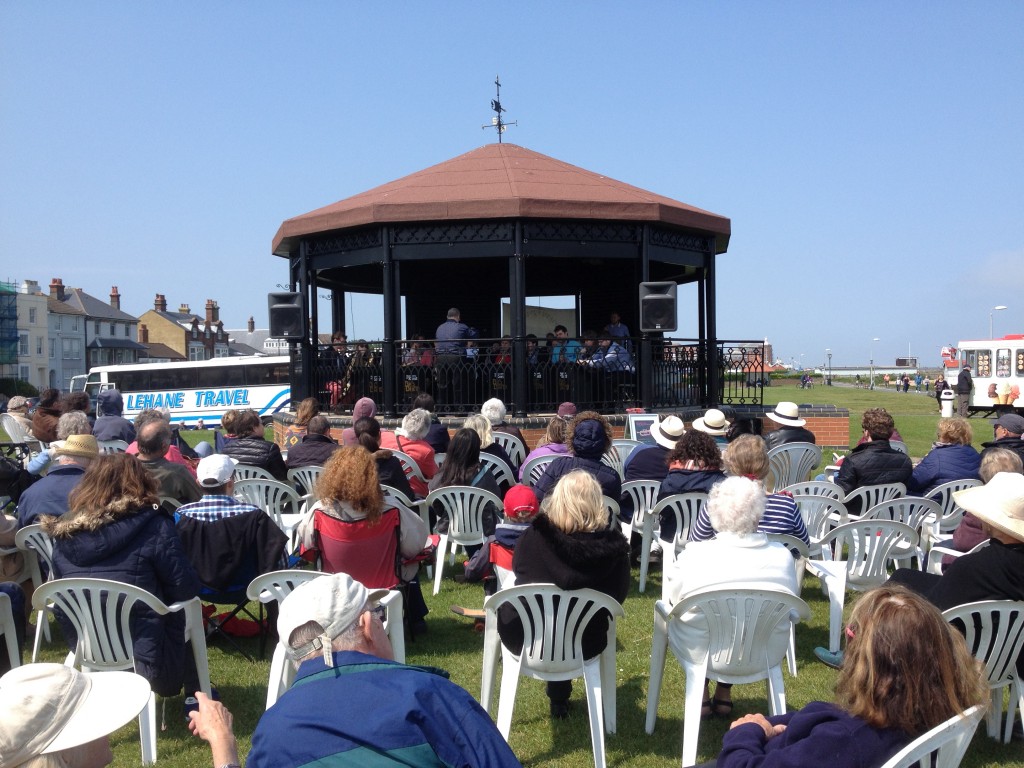 The groups don’t just perform in the adaptable acoustics of Colyer-Fergusson Hall. The Big Band also launches the annual Summer Music Week, a musical farewell to the University’s academic year, with a trip to the seaside to perform on the Memorial Bandstand at Deal, which involves combining rehearsals and coach-trips with a visit to the promenade chip shop and the roving ice-cream stand. (It’s a hard life…). The band has also headed down the road to perform alongside pupils at St Edmund’s School, and also in Whitefriars in the heart of the city.
The groups don’t just perform in the adaptable acoustics of Colyer-Fergusson Hall. The Big Band also launches the annual Summer Music Week, a musical farewell to the University’s academic year, with a trip to the seaside to perform on the Memorial Bandstand at Deal, which involves combining rehearsals and coach-trips with a visit to the promenade chip shop and the roving ice-cream stand. (It’s a hard life…). The band has also headed down the road to perform alongside pupils at St Edmund’s School, and also in Whitefriars in the heart of the city.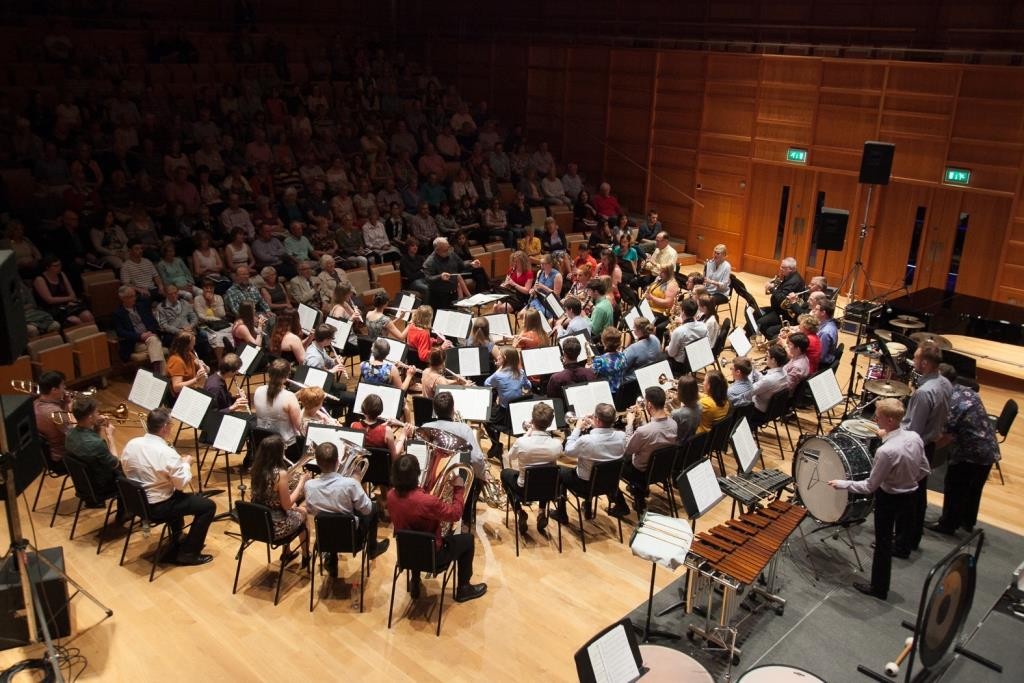

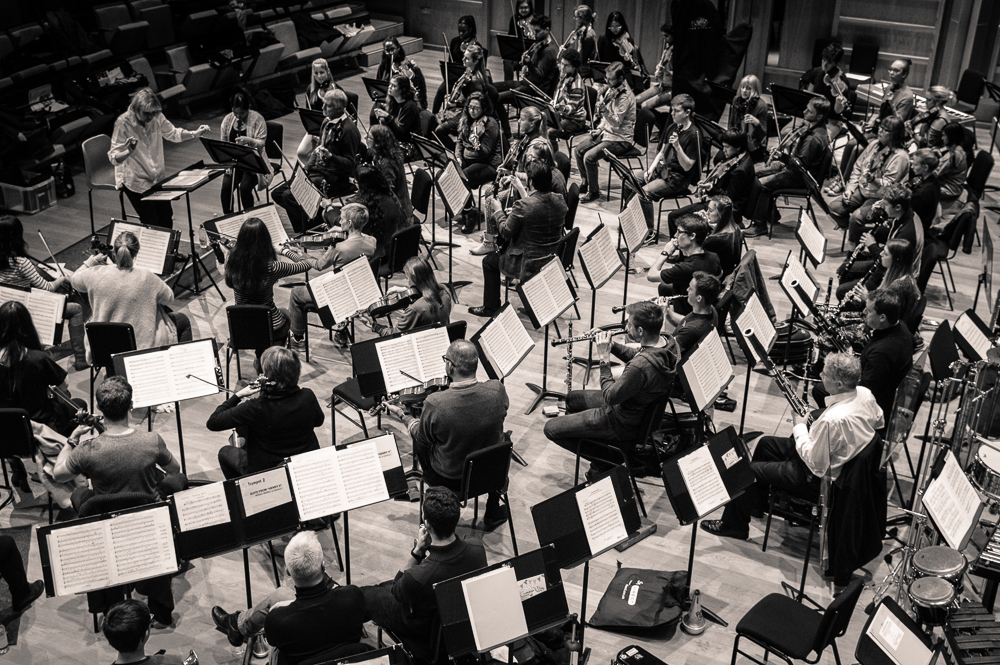 Such communal music-making offers the opportunity for students (and, it must be said, quite a few staff as well…) to escape the stress of their course commitments, and embark on a shared creative endeavour as they work towards a termly public performance. Each spring term, that performance is unveiled in the sonorous surroundings of the Nave of Canterbury Cathedral, always a highlight of the University’s performing calendar, and which regularly sees alumni making their own musical pilgrimage to the Cathedral to participate, and to relive the heady excitement of standing at the very top of the choral risers to sing, or of navigating the steps to the Crypt in the gloom clutching highly fragile musical instruments at various levels of expense.
Such communal music-making offers the opportunity for students (and, it must be said, quite a few staff as well…) to escape the stress of their course commitments, and embark on a shared creative endeavour as they work towards a termly public performance. Each spring term, that performance is unveiled in the sonorous surroundings of the Nave of Canterbury Cathedral, always a highlight of the University’s performing calendar, and which regularly sees alumni making their own musical pilgrimage to the Cathedral to participate, and to relive the heady excitement of standing at the very top of the choral risers to sing, or of navigating the steps to the Crypt in the gloom clutching highly fragile musical instruments at various levels of expense.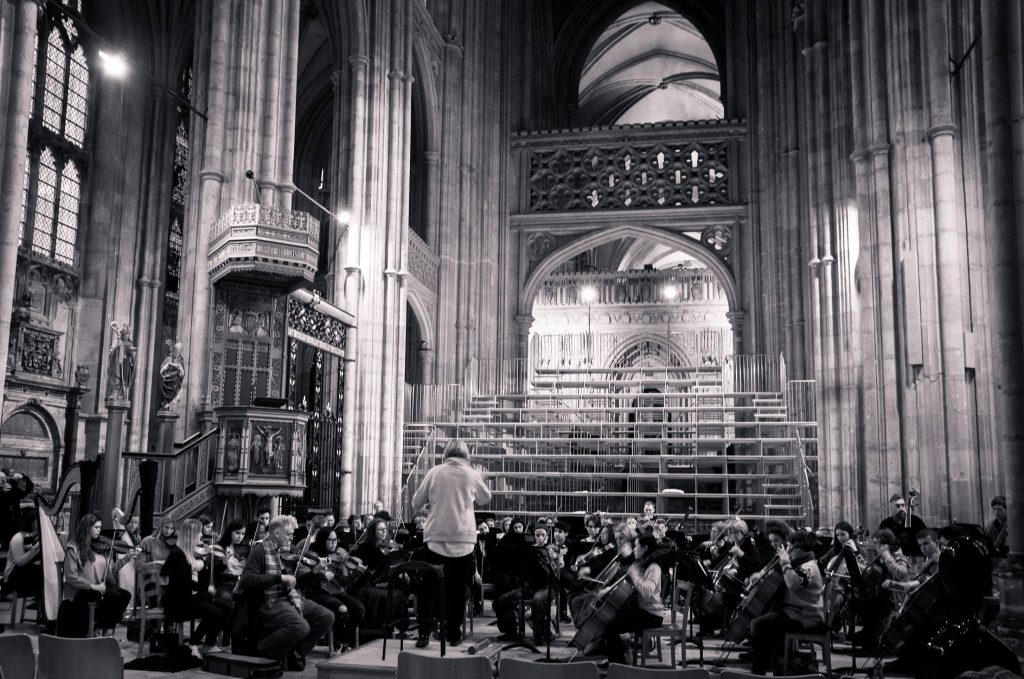
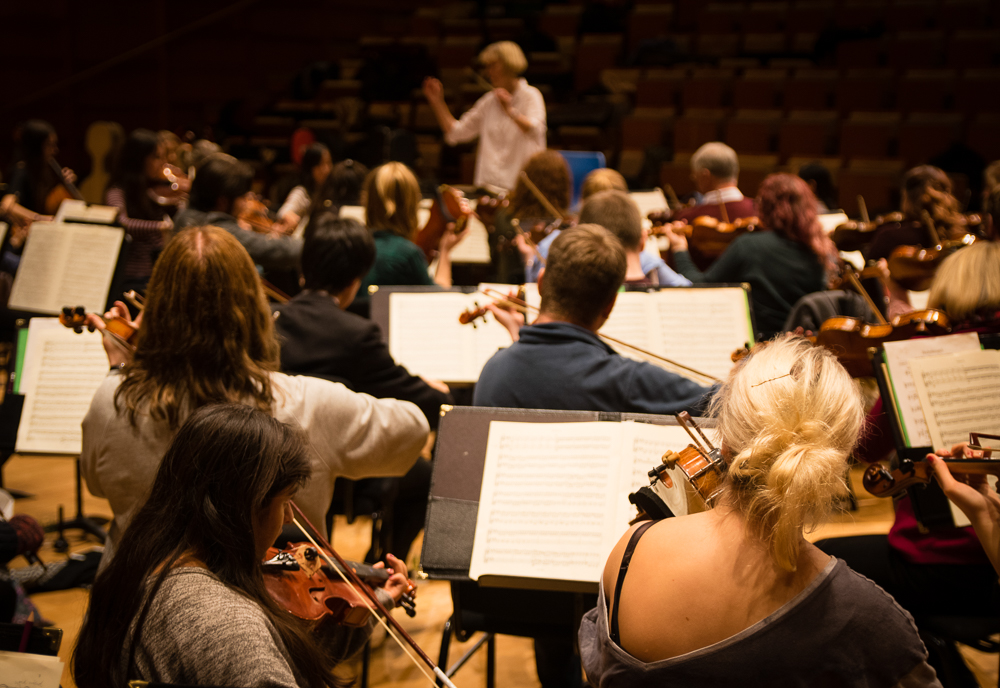 The wonder of it all is that everyone gives up their free time to attend weekly evening rehearsals, and, as concerts loom, additional rehearsals and workshops at weekends. No-one is obliged to take part – excepting the Director of Music, who arrives in the concert-hall each Thursday clutching oversize scores, a selection of conductor’s batons and the fierce determination to master that term’s repertoire – and when concerts are in the offing and more rehearsals are taking place, time-management (or, in the case of some of the players, parental child-management) skills are called in to play, as everyone makes time for them on top of their coursework or vocational commitments.
The wonder of it all is that everyone gives up their free time to attend weekly evening rehearsals, and, as concerts loom, additional rehearsals and workshops at weekends. No-one is obliged to take part – excepting the Director of Music, who arrives in the concert-hall each Thursday clutching oversize scores, a selection of conductor’s batons and the fierce determination to master that term’s repertoire – and when concerts are in the offing and more rehearsals are taking place, time-management (or, in the case of some of the players, parental child-management) skills are called in to play, as everyone makes time for them on top of their coursework or vocational commitments.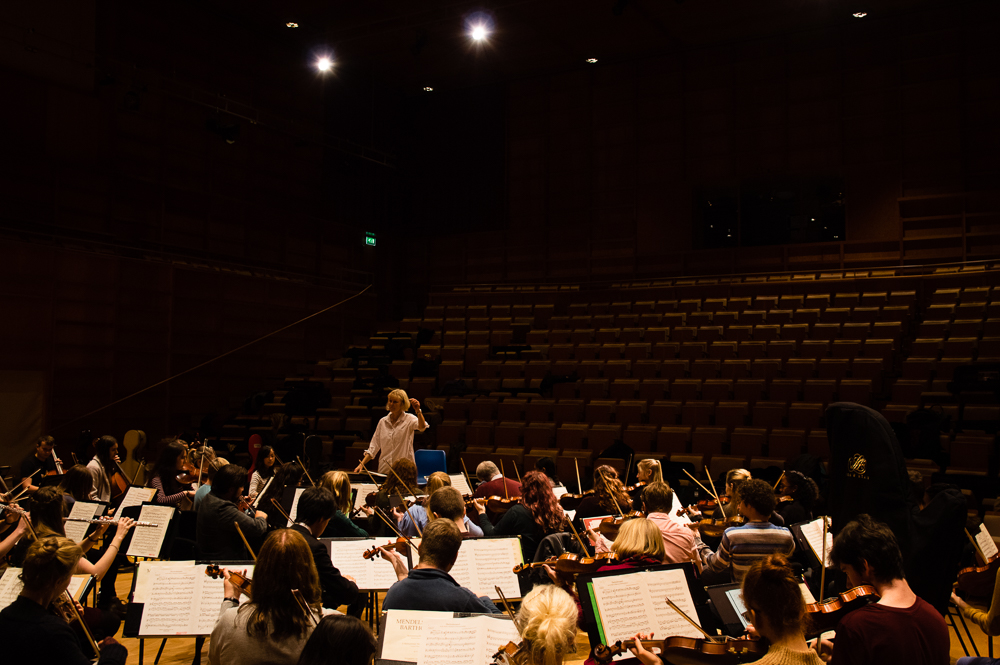
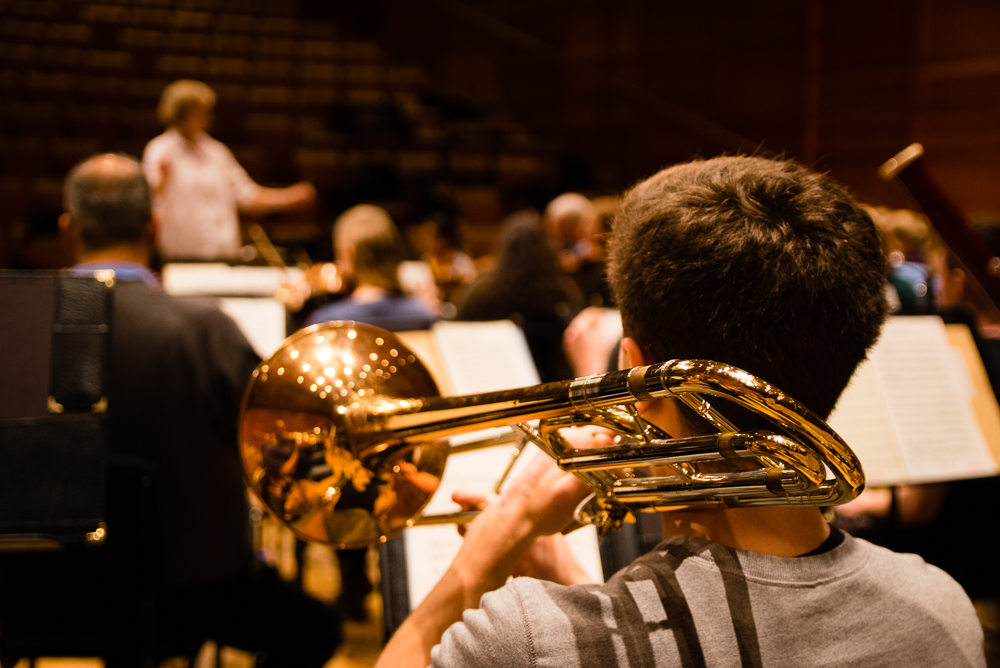 The orchestral repertoire which they have embraced over the years has ranged from epic monsters of the Romantic Period – the Berlioz in 2016 being a memorable example – to energetic orchestral showpieces including the Symphonic Suite from Bernstein’s West Side Story, or Verdi’s Requiem. It’s hard work, particularly at the end of a long working day, especially for those students who have the additional task of commuting from Medway on a Thursday evening as well, where they have been studying Fine Art or Business and Management; and yet the enthusiasm with which the players embrace the works which the Director of Music hurls at them is wondrous to behold.
The orchestral repertoire which they have embraced over the years has ranged from epic monsters of the Romantic Period – the Berlioz in 2016 being a memorable example – to energetic orchestral showpieces including the Symphonic Suite from Bernstein’s West Side Story, or Verdi’s Requiem. It’s hard work, particularly at the end of a long working day, especially for those students who have the additional task of commuting from Medway on a Thursday evening as well, where they have been studying Fine Art or Business and Management; and yet the enthusiasm with which the players embrace the works which the Director of Music hurls at them is wondrous to behold.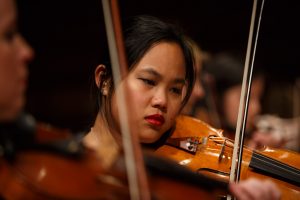 This year, the Symphony Orchestra will be led – for the first time for the entirety of the Cathedral concert – by Lydia Cheng (picture right), a second-year Music Scholarship student from Canada, who came to Kent for the strength of its Law degree as well as for the extra-curricular music-making opportunities that it offers. Elsewhere in the orchestra, a former member of the National Youth Orchestra sits amongst the woodwind, and a current member of the National Youth Jazz Orchestra lurks in the brass section. There’s an international flavour to the orchestral members, too, including players from Malaysia, America and South Africa.
This year, the Symphony Orchestra will be led – for the first time for the entirety of the Cathedral concert – by Lydia Cheng (picture right), a second-year Music Scholarship student from Canada, who came to Kent for the strength of its Law degree as well as for the extra-curricular music-making opportunities that it offers. Elsewhere in the orchestra, a former member of the National Youth Orchestra sits amongst the woodwind, and a current member of the National Youth Jazz Orchestra lurks in the brass section. There’s an international flavour to the orchestral members, too, including players from Malaysia, America and South Africa.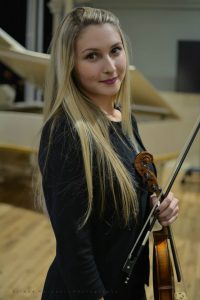 As I grew older, I became increasingly captivated by my instrument. I have learnt that a successful performance requires many challenges to be overcome such as gaining high self-confidence and learning to communicate musically with the audience.
As I grew older, I became increasingly captivated by my instrument. I have learnt that a successful performance requires many challenges to be overcome such as gaining high self-confidence and learning to communicate musically with the audience.
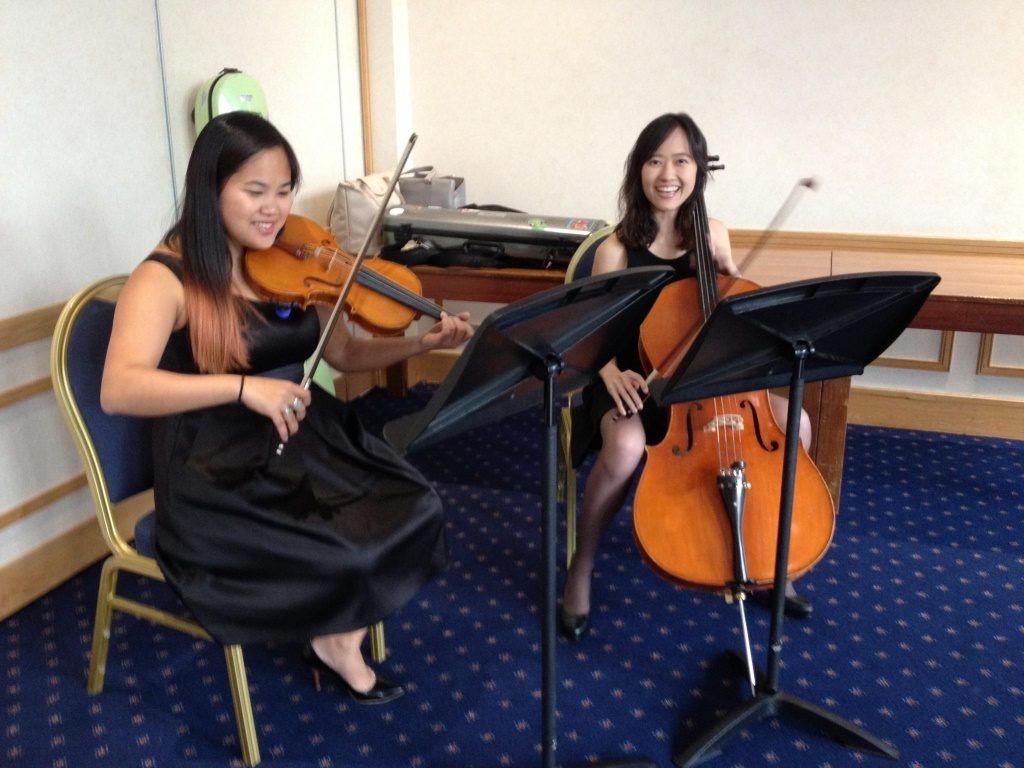
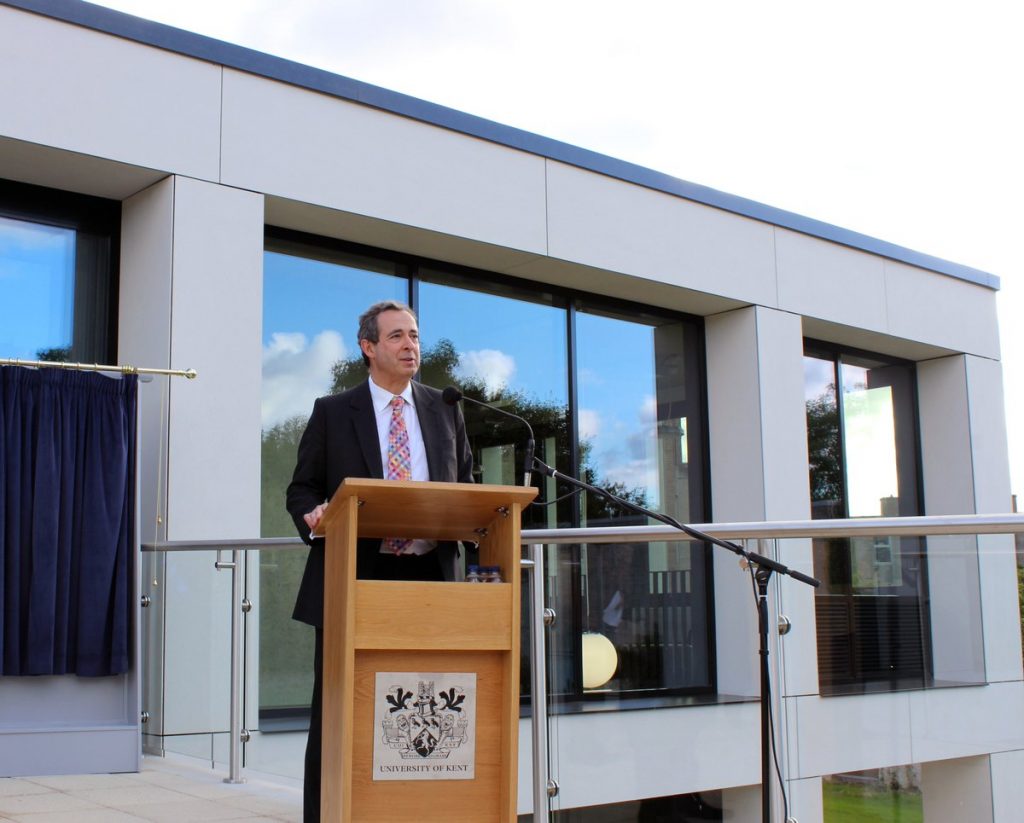
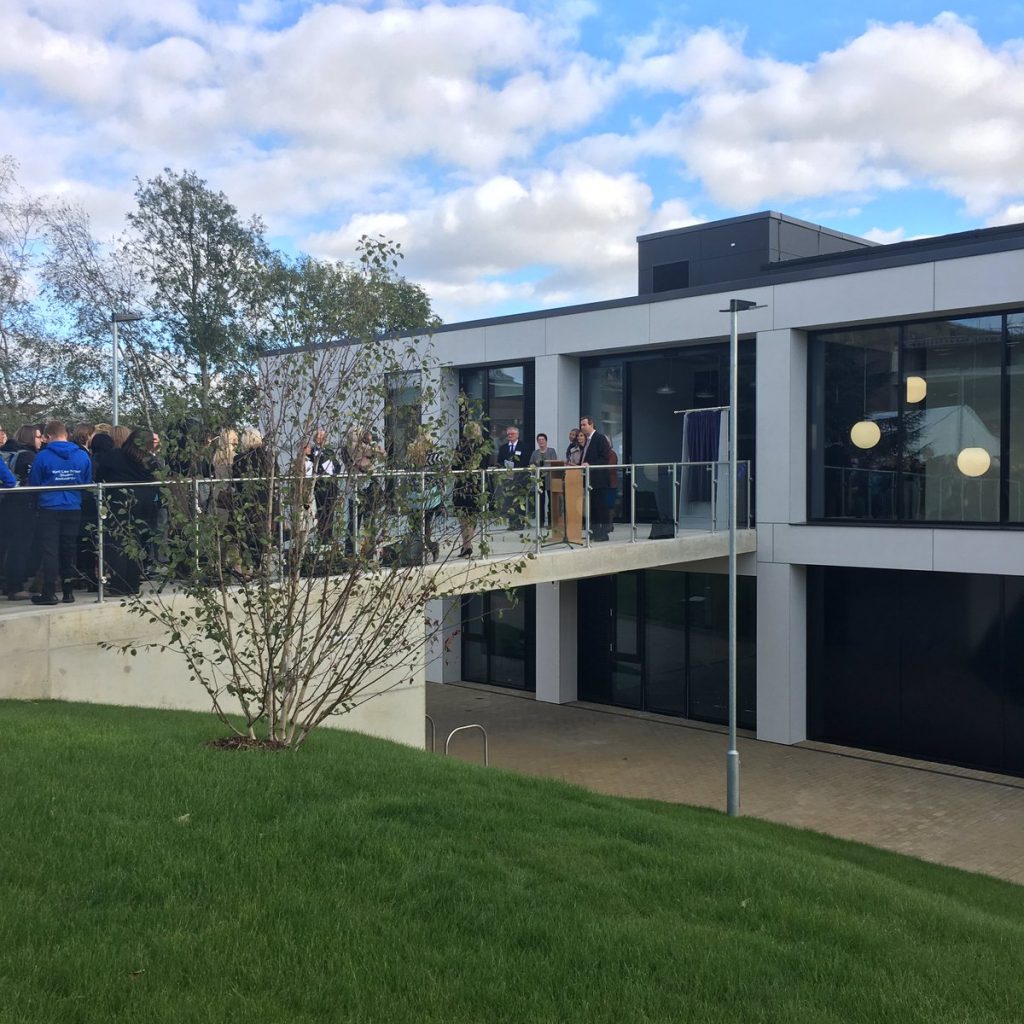
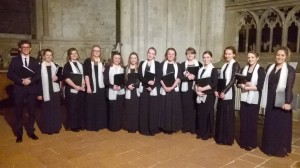 Watch it online
Watch it online 
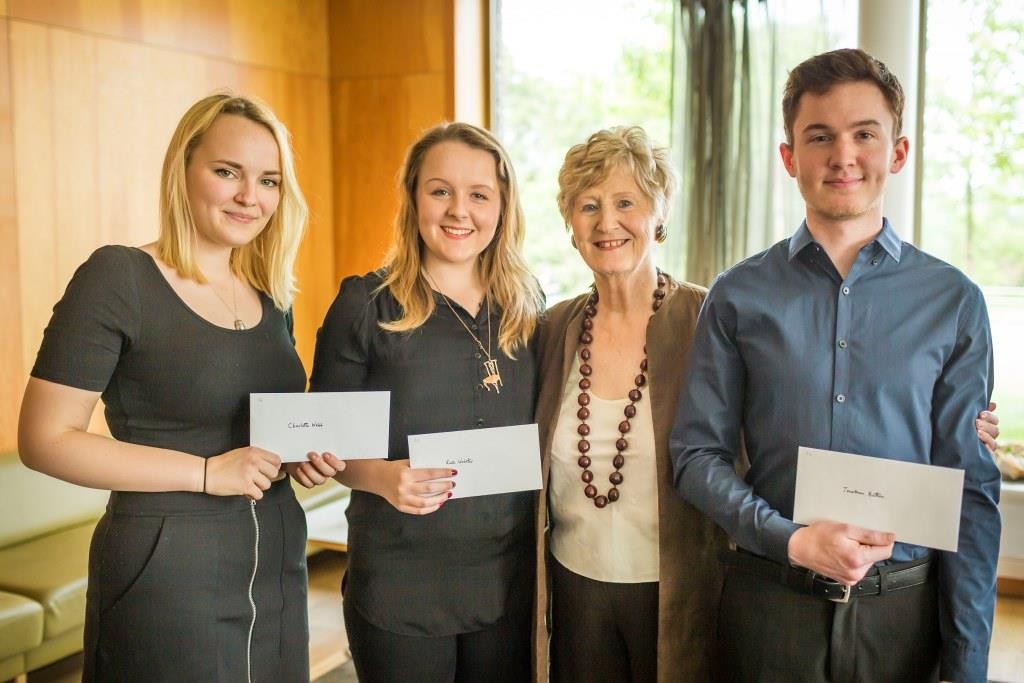 Second-year Music Scholar and Biosciences student, Ruth Webster, (pictured above, second from left) will be familiar to those of you who have come to choral events over the past couple of years – Ruth sings with the University Chorus, Chamber Choir, Cecilian Choir, Minerva Voices and has sung as soloist in Vivaldi’s Gloria, Handel’s Messiah and Horovitz’s Horrortorio; she was also joint winner of the John Craven Music Prize for her contribution to music-making last year.
Second-year Music Scholar and Biosciences student, Ruth Webster, (pictured above, second from left) will be familiar to those of you who have come to choral events over the past couple of years – Ruth sings with the University Chorus, Chamber Choir, Cecilian Choir, Minerva Voices and has sung as soloist in Vivaldi’s Gloria, Handel’s Messiah and Horovitz’s Horrortorio; she was also joint winner of the John Craven Music Prize for her contribution to music-making last year. This year, though, Ruth is trading in the wood-panelled concert-hall and the Biosciences lab for exotic food and clothes markets, tropical storms and the richly-hued life of Malaysia, where and she and several other students from the University of Kent are studying at the Universiti Teknologi Malaysia (UTM) in Johor Bahru, in the very south of Malaysia.
This year, though, Ruth is trading in the wood-panelled concert-hall and the Biosciences lab for exotic food and clothes markets, tropical storms and the richly-hued life of Malaysia, where and she and several other students from the University of Kent are studying at the Universiti Teknologi Malaysia (UTM) in Johor Bahru, in the very south of Malaysia.